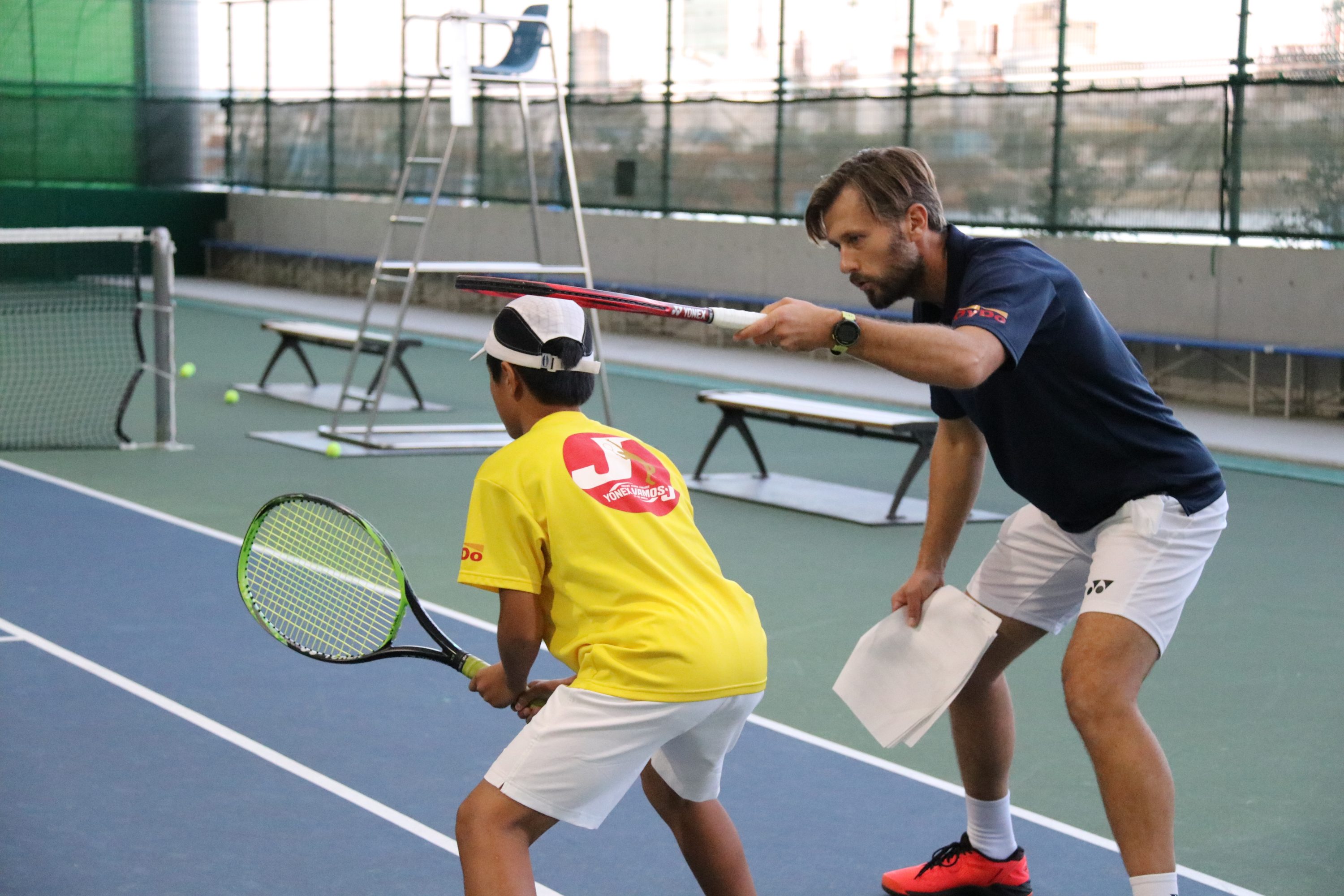
17 Jan Are you asking yourself the right question?
What am I doing wrong? Why have I missed that shot into the net? Why can’t I control the ball? Why, why, why and a thousand more why?
Those are very real questions and players ask them all the time, but a bigger question is at issue here: will answers to those questions really help you become a better player?
When we come to the doctor’s office, feeling sick, after a few tests or just by looking at the symptoms, the doctor can tell what is wrong with us. Except for very rare cases, making a diagnosis is an easy part, but the diagnosis alone is not something that will actually help us feel better, it’s the cure that we are looking for.
In tennis, I believe that the diagnosis for a missed shot or a lost match is quite relative because very often the reason behind it could be a mixture of many smaller occurrences. Tennis is a game of inches; five millimeters difference in a racket angle can put a ball one-meter off the target on the other side of the net. It’s very difficult for a human eye to detect it, even in a super-slow motion. Like Al Pacino said: “one inch too short and you don’t quite make it, one second too fast or too slow and you don’t quite catch it.”
I feel that in tennis just like in medicine, setting the right diagnosis of a player’s current state is an extremely important task, but after that we need to put all our focus and energy towards finding “the cure”. However, trying to answer all the “why” questions on a micro level (daily basis) could be a waste of energy and time. One day it is a late preparation, the other day it is timing, then it’s the racket position, the follow through, etc. The point is that if we keep looking, we can always find something wrong. We can easily fall into this magical circle of questions and answers where every day we can come up with hundreds of questions in search of a perfect answer. The next day, a new question arises, and you get caught up in a never-ending circle. Sometimes, it may just happen that somebody actually has the answers, but will this really help the player win a tournament?
There is a well-known test performed in a room full of people who were asked to look around and try to find everything brown-coloured. After one minute of looking, the question was to list all objects coloured in red. They were then asked to carefully look around the same room again and this time to actually find all red-coloured objects. Do you think they found more red things the second time? Of course they did.
“Whatever you are looking for, you are going to find. In fact, you will even find it when it’s not there. Whatever you are asking yourself, you will get an answer, whether it’s true or not. If you ask what’s wrong in my life, you will get an answer, although there may not be anything wrong.” (Tony Robbins)
I believe that the question the players should ask themselves when struggling with a certain shot or a game situation is: How can I make this better? The follow up question is: What actions should I take to make the most of this situation? We sometimes get stuck by trying to figure out the cause instead of putting all our focus and effort on finding the ways to improve. The thing is, the “why” question may give you some answers, but “how can I make this better” question will teach you the magical art of creative thinking because sometimes, just sometimes, the ability to ask the right question at the right moment is more important than the answer itself on a road to personal growth. In a majority of cases, there is no instant solution to a certain problem that the player is facing. Sometimes a quick fix can work, and it can make you feel good, but the next day another problem will come up, and another and so on. The answer lies in the process and series of actions that we need to take in order to make sustainable improvement.
“Quality questions create a quality life. Successful people ask better questions, and as a result they get better answers.” (Tony Robbins)
Let me now go back to a practice of Rafa Nadal in Wimbledon 2018 that I wrote about in one of my previous blogs. There was a man at the practice court 1 at Aorangi Wimbledon practice site. The man who had just won his 11th Roland Garros title and made tennis history, is practicing his serve for more than an hour in total silence, deep focus, searching for that perfect feel. He was not serving perfectly, neither with a perfect technique (if we search, we can find many imperfections in Rafa’s serve), but he was not asking himself or anybody else what is wrong with his serve. His goal was not to have a technically perfect serve, his goal was much bigger: to serve good enough to win Wimbledon. He was trying to find his own “perfect inch” to hit that serve where he wanted and to get that feel that he needed. He didn’t win Wimbledon but he was very close to it.
Every tennis player, including the best in the world, has certain imperfections in his shots. Many times, we have all seen the best players struggle with a certain shot during the match or in the practice, but they, somehow, find their way out of it faster than others. It may just be that knowledge is having the right answer, but true wisdom and insight is asking the right question.
Follow me on social media: Facebook, Twitter, Instagram and Linkedin

